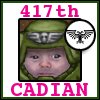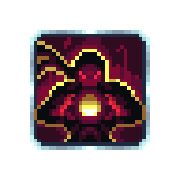|
Whybird posted:My thinking was not that the Viceroy would be sending the players on specific quests -- more that they're there to keep order in Town, fireball any attempts on the prisoners' part to build a raft and sail home, and when the players come back from an adventure with a fat sack of gold and priceless jewellery the viceroy ships it back home, sells it for a huge profit, and gives the prisoners like a 5% cut which they can only spend at his company store selling slightly-less-poo poo equipment and cigarettes. To zoom out on the broader context there I'd want to make sure with the players that they're cool with being punished for going back to town like that. Some groups may balk but others may see it as a challenge in and of itself, but I don't know that it would be a Wild Crawl at that point since the Town could be portrayed as a hostile environment (not literally to the death, but economically hostile still means that the town itself is not truly 'safe'). I guess it is also a point to question where the gold and jewels come from and if that in and of itself is a theme ought to be discussed in greater detail, then it should. The main thing I'm feeling here is that since a Wild Crawl has no antagonist out the gate (though one might show up over time) adding a Viceroy in changes where the focus lies. I know that if I was a player in such a game after I learned of the intention of the Viceroy probably the first thing I would do is start looking for ways to take down the system, then the focus has shifted from venturing to the "Wild" space to deconstructing the "Town" space, which could be what you're going for, but if not, it is almost something that will certainly have an influence on the game state.
|
|
|
|

|
| # ? Apr 28, 2024 06:24 |
|
aldantefax posted:To zoom out on the broader context there I'd want to make sure with the players that they're cool with being punished for going back to town like that. Some groups may balk but others may see it as a challenge in and of itself, but I don't know that it would be a Wild Crawl at that point since the Town could be portrayed as a hostile environment (not literally to the death, but economically hostile still means that the town itself is not truly 'safe'). I don't think of it as the players being punished for going back to town: there's literally nowhere else they can sell this treasure, so trading it for the Viceroy for better weapons and healing potions is still a step above just sitting on it. The town is still a safe space for them compared to the Marches themselves: it's somewhere they can rest up in relative comfort. And the players are still adventuring out of choice: if they don't wanna risk life and limb in the wilds, they can always go back to farming. But yeah, agreed that this frames the Viceroy as an antagonist to be taken down, and that does detract from the WM premise a little.
|
|
|
|
I don’t view it as a punishment strictly but you could argue convincingly (particularly if you are affected player) that if you “gain something” only to have it “taken from you” and the remainder is your actual income, then you have “lost” despite making a profit. Since the gain is outsized compared to the true profit and intake, that is the thing which can be viewed as “I gained a bag of money, but after going back to town, the Viceroy *took* 95% of my money and now I only have 5% left of that bag.” Semantically, that is still +5% profit, but because it *could have been* +100% profit instead...You see where that might end up leading. Anyway, this brings up some key insights. I think that a task-giver that may or may not also be an antagonist can be used in a Wild Crawl, but it need not be an antagonist. For the purposes of examining if that component would be useful to include, the narrative elements could also be defined in much the same way that random encounters would be in the wild Faction Generation Types: - Role - Starting Disposition - Wants - Needs - Purpose - Lair* Roles in Town: - Authority - Quest Giver - Amenities The Whybird Viceroy, then, could be defined as: - Role: Authority + Quest Giver - Starting Disposition: Indifferent to Hostile - Wants: More Economic Power, Order - Needs: Maintain Power, Order - Purpose: Serves to tie the Town together as an extension of a distant empire. Takes most economic benefit away from players and ships it out. - Lair: Viceroy Estate, a heavily guarded, opulent estate at the edge of Town If we define it thus we can adjust any of the dials to get some interesting things while still servicing what you want to provide contextually to players. In other words, if Viceroy wants to be a figure that is not that much of an rear end in a top hat, you can change Disposition, Purpose, and Lair, and probably Wants as well to get an altogether different feel. Another thing is if you more fully qualify “power players” like this in a Wild Crawl, this means they can be negotiated with or coerced as the default activity for them rather than the much more destructive murdering and looting them. Similarly, because this template can be extended to both “Town” and “Wild” contexts, you can establish any number of different combinations suitable for exploration. If the “Wild” is empty of people (or mostly empty) and it is just the environment, then you could still have the environment in place of people, but you have to get a bit creative with it and massage the Roles a bit to define the entity like a big ol’ Giving Tree or something that wants people to be happy and needs nourishment.
|
|
|
|
Generally speaking I have more ideas about Wild Crawls but I think part of what one could do to make their own crawl a unique type of thing has to do chiefly with what parts of the game you want to prioritize that modify the Wild Crawl format. From reading more about how other people are structuring a Wild Crawl, the main differentiator between it and a megadungeon (aside from the logistical aspect) is the “distance”. In other words, there must be some kind of meaningful distance to go by which itself is an important and key part of the game play. When it comes to a Wild Crawl or most any other ‘classic’ type of gameplay in this vein, then, you have a certain level of expectation to create procedural structures to have the mechanics inform the narrative experience. I think there are probably opportunities to argue to death when the boundary between gameplay begins, but many players in my other games are actively looking to take the game beyond the constraints of a specific block of time. For them, play happens when they are thinking about it, asking questions, interacting with each other, regardless of when people are at the table playing or not. This is an interesting concept to combine with “distance” then. Could you, perhaps, make distance more meaningful by implementing more in depth journey mechanics? Absolutely, and the expectation should be such, though the mechanics don’t need to be particularly complex - they do need to be interesting though. When I was putting out word vomit into the Megadungeon thread, I noted that when developing new mechanics or adapting mechanics for play, I prioritize three things: - Positive feedback loops - Clarity - Aesthetics This means then that in order to make journey mechanics worthwhile, it needs to have something that will reward interacting with the system such that it will provide small and large rewards, but also be clear to understand and fit with the overarching ideas of the game itself. Let’s extend the idea I had brought up in an earlier post then which envisions characters swapping out leveling up for revealing more about their character sheet. Memories and internal examination are important, but they also need to go meet their basic needs, find more bits of their memory out in the Wild, and then maybe have a run at ‘going home’. To stay in the safety of town would mean they lose what little attachments and memories they have, and they fade into the background, becoming a “Null” and exiting play. Based on the above paragraph, we have a generally clear theme and drive for players to go into the Wild, but what do they do when they are out there? How do they get from A to B? The goal I would have with the journey mechanics then is something like as follows: - Planning is good. Allow and reward players that plan for their journey carefully through preparing resources - Reserve. For players not interested in planning carefully (or not having that opportunity) to still deploy to the field with their character’s basic resources - You can’t bring everything. Introduce a resource economy that reinforces teamwork and discovery. I think this is good to put into a balancing act that you can have on a sheet to associate dice with. Let’s say you use the humble six-sided die. Each pip on each die represents ‘quality of resource’, which will be initialized to 2. If resources reach 0 quality, the die is removed and cannot be restored until the group returns to town or finds a resource point in the Wild through luck, knowledge, or skill. Let’s set our resources on a sliding scale for pairs of resources so you have a fairly simple balancing act. Thus: - Sustenance versus Mobility. The more supplies you bring with you, the slower and less flexible your crew becomes. - Gear versus Subterfuge. You can bring platemail out into the field and a catapult, but it’s likely you will be spotted from miles away. By what? Do you want to find out? Gear does not have to be immediately defined but serve as requisition points to ‘manifest the right thing at the right time’. - Bravery versus Knowledge. They say that being brave is a fool’s task, but fortune favors the bold. Adventurers must leverage Bravery to overcome obstacles against all odds. However, having Knowledge allows you to identify things out in the Wild, so if you take the time to analyze and research things in the field, you can identify and make permanent the things you discover. Okay, so that’s six resource types to do a tug of war with. They sound pretty interesting already to me, but the most interesting is probably “Bravery versus Knowledge”. How can I make “Sustenance versus Mobility” more interesting? You receive a certain amount of dice at a certain quality at the start of your requisition. Add 2 quality to distribute to your resource dice for every other player that is going out into the field with the Expedition Leader. The additional quality granted by extra players ensures that there is a certain amount of points to plan on these sliding scales that best describes how a journey is supposed to go, and can be represented on the Journey Charter. This would put the majority of the “planning is fun” mechanics to the people most interested in planning, which is whoever is organizing the actual group. Each player may have one or more bonuses to contribute because they have traits that do so, like maybe someone remembers how to pack things efficiently, so they can increase Sustenance or Gear quality by some amount. This assuredly makes sure that players can feel useful and contribute to the group’s survival. I think if I was going to do this in greater detail each character would have a certain element with them which influences their Reserve. These are special dice that each character gets and is part of their distinguishing traits which can be used to overcome challenges in the Wild. For example: A party of four has agreed to investigate a rumor about an abandoned mine about a day’s travel away from Town. They’ll want to bring enough Gear and Sustenance to get through the wilderness and into the mine. They have the elements of Air, Wood, Fire, Metal. Nobody with Water element reserve dice was available, so if they encounter a Water challenge they may need to spend more resources or try to bypass the that challenge by going around it somehow. I’m thinking of a system like how AGON represents its challenges as mythologically dramatic displays of someone naming themselves and how they will meet a challenge, which also determines the amount of dice they commit to it. Something like this is interesting to recontextualize, because if a character has discovered something about themselves and invokes their qualities, it can have a greater narrative impact and be fun at the table. Continuing the above example, the party arrives at the mine without too much incident but their supplies can only support a short delve into the mine. Gear is leveraged to manifest exploration equipment like torches, pickaxes, and the like. The party begins to descend deeper, and must face spooky monsters and use their Bravery or Knowledge to hold their ground and identify the monsters and world around them. The party may also find after navigating the dangers they have an environmental challenge in front of them, which is a large raging river with a cluster of Memory Fragments on the other side. They now have to figure out using their abilities, memories, and resources how best to tackle this. If someone with Water resources was available, perhaps they could part the water by expending their Water elemental reserve. This is mostly rambling at this point and maybe it would be good to prototype this out on Tabletop Simulator but perhaps this is going to tickle some inspiration from someone and they might chime in to say “this sounds like this system from this other game and maybe that could be useful for further desigin”.
|
|
|
|
As part of helping to define a Journey Charter I have decided to form up and roll out a prototype for the megadungeon game I'm running. This can almost certainly be optimized and simplified with a much better page layout, but it's getting close to 2 AM and I'm calling the first draft good enough: https://docs.google.com/document/d/1WFL0ZSUYzym-CWAH6QDxft0z97YqiLEzqmT7FxjEh3s/edit?usp=sharing
|
|
|
|
I don't have much content, but just want to come in and say I am appreciating the paths your thoughts are taking, and thanks for sharing them with us.
|
|
|
|
Are there any West Marches / crawl style games going on in the forums right now? Given the player pool / low commitment thing, I thought they would be more popular in the forums.
|
|
|
|
ninjoatse.cx posted:Are there any West Marches / crawl style games going on in the forums right now? Given the player pool / low commitment thing, I thought they would be more popular in the forums. While committing to any particular excursion is low, once you have, the expectation is that the session itself will have serious engagement. I don't know that that's easy to work with in PbP, which is already stop-and-go for any individual decision point inside of a session.
|
|
|
|
ninjoatse.cx posted:Are there any West Marches / crawl style games going on in the forums right now? Given the player pool / low commitment thing, I thought they would be more popular in the forums. Die in the Depths is a dungeon-crawler/tactical/roguelike homebrew game running right now, although it doesn't involve static map exploration and is also moving into endgame; the GM has mentioned possibly doing a more Marches-y follow-up, though.
|
|
|
|
Absurd Alhazred posted:While committing to any particular excursion is low, once you have, the expectation is that the session itself will have serious engagement. I don't know that that's easy to work with in PbP, which is already stop-and-go for any individual decision point inside of a session. I kind of wonder if there’s a different system that could serve as an in between forum posts and live sessions. A discord chat type system, perhaps? I feel like this is a common problem someone else has solved.
|
|
|
|
ninjoatse.cx posted:I kind of wonder if there’s a different system that could serve as an in between forum posts and live sessions. A discord chat type system, perhaps? I feel like this is a common problem someone else has solved. I can imagine it working with a very different style of game, where the players control a caravan or large expedition, and gameplay is the players who are present voting on what decisions the caravan makes. But not if the players control individual characters, who need to be present for every encounter the group runs into.
|
|
|
|
Wrong thread, but happy to see people chatting about it. I should have some thoughts on asynchronous West Marches play that I've been working on recently, which is to say, in the past several months or so.
|
|
|
|
ninjoatse.cx posted:I kind of wonder if there’s a different system that could serve as an in between forum posts and live sessions. A discord chat type system, perhaps? I feel like this is a common problem someone else has solved. I'm still playing with the idea of a West March system based on solo tabletop games, where the DM can just send a package to the player. But there needs to be room for joint journeys or player interaction or something, so you probably need some kind of PbP system or discord.
|
|
|
|
Notahippie posted:I'm still playing with the idea of a West March system based on solo tabletop games, where the DM can just send a package to the player. But there needs to be room for joint journeys or player interaction or something, so you probably need some kind of PbP system or discord. A single thread should do it - solo games lend themselves more to long form writing. Having a thread allows people to keep track of whats going on - you lose the mystery of what happens when a PC fails to return, but you also have constant updates as the world builds out. You would need a spreadsheet/google doc of places, characters and the like, as well as a basic map people can scrawl on, but it would work. (I'm up for it as well)
|
|
|
|
Notahippie posted:I'm still playing with the idea of a West March system based on solo tabletop games, where the DM can just send a package to the player. But there needs to be room for joint journeys or player interaction or something, so you probably need some kind of PbP system or discord.
|
|
|
|
Absurd Alhazred posted:While committing to any particular excursion is low, once you have, the expectation is that the session itself will have serious engagement. I don't know that that's easy to work with in PbP, which is already stop-and-go for any individual decision point inside of a session. One option would be to have the expeditions into the wilderness entirely GM-adjudicated with nearly no player input, send the results of an expedition back in private to only the PCs who went on them, and have the game entirely focus on the players discussing what they found, negotiating about where to go for their next expedition, and deciding who to bring and how to split the loot. It'd be a very different game and you'd need to be sure to create enough stuff going on that decisions like "well I need a ranger to get us through the goblin warrens undetected and a priest for the undead at the gate, but the more people we bring along the less treasure for each of us" get interesting.
|
|
|
|
Whybird posted:One option would be to have the expeditions into the wilderness entirely GM-adjudicated with nearly no player input, send the results of an expedition back in private to only the PCs who went on them, and have the game entirely focus on the players discussing what they found, negotiating about where to go for their next expedition, and deciding who to bring and how to split the loot. That sounds a lot like Tony Bath's Hyborian Campaign. People made mostly strategy-level decisions, and whenever something tactical needed to be done (in that case, mostly battles), Bath and sometimes another person (a co-ref) would set up a wargame to adjudicate it and play that. If people were able to actually come and do it in person, that could happen, too, but the default was this way.
|
|
|
|
I missed this thread when it first happened, but it's in line with a lot of stuff I'm working on and thinking about right now. I've been leaning in more of a "extremely dense, relatively small, open-ended" direction (inspired in part by Hot Spring Island), but this resonates pretty well with that. One way I've found to (partially) fight against the colonialism angle is to change what the PCs are hunting for out there in the wilds. I really like how GP=XP turns XP into a common but restricted physical object scattered throughout the setting, and getting it being usually but not perfectly aligned with the actions the PCs are expected to be doing anyway leads to some really fun and interesting situations, but making the players into genuine treasure hunters delving into the lands of other sentient civilizations leads to some real ugly imperialism real easy. I'm experimenting with making XP come primarily from research and diplomacy, instead. Whenever the PCs encounter something new and unknown to 'civilization' (be it a monster, archeological site, relic, society, etc) they get XP if they spend some time studying it--an action which inherently involves them intertwining themselves with it a bit and potentially getting into trouble; the monster attacks, the site has a set of stairs leading ominously down, the relic is trapped, the society members want to ask a favor, etc. Diplomacy means establishing contact and setting up friendly relations with new societies--you get XP as your relationship with the faction increases, probably as you do quests/etc for them. Lots of the societies are at odds with each other, so it'll be hard to forge strong relations with all of them at once, but it's rewarding if you can. Adventurer-naturalists don't have a spotless track record on not being racist in real-world history, but it's way better than the conquistadors that fantasy heroes are traditionally modeled off of. All of this works much better if there's some line of interconnected secrets tying the setting together from behind the scenes, since it really puts an emphasis on understanding the setting and its dynamics. One issue that seems tough for a West Marches game in which you aren't hopelessly at odds with all the other intelligent creatures you encounter is forcing the players to go home at the end of the session. If a huge part of the game is trying to forge deeper and deeper into the wilds it feels like the desire to recuperate from a forward position with some friendly lizardpeople would be really appealing, but it also breaks the core premise of the game pretty badly. Treasure has a nice natural 'it's heavy, and the only place you can dump it is the home base' quality to it, but in a game where that's less emphasized I don't have a great answer on why the PCs need to go all the way to home base each session.
|
|
|
|
OtspIII posted:I missed this thread when it first happened, but it's in line with a lot of stuff I'm working on and thinking about right now. I've been leaning in more of a "extremely dense, relatively small, open-ended" direction (inspired in part by Hot Spring Island), but this resonates pretty well with that. Well, they need to report things, right? If you end a session with a bunch of friends you've made along the way, there's no reason not to have their next adventure start after they've safely gotten home and reported things. Hell, if it's appropriate enough to consider the trail between home base and new pals blazed, then you can just let them have a bigger meta-home to start expeditions from next session.
|
|
|
|
When it comes to play by post the majority of game systems that are selected for it tend to have one key thing in common, which is a focus on moment to moment tactical resolution. The most common example is D&D, but pretty much anything with a granular turn system of any kind tends to cause a large amount of drag when most participants cannot make decisions (or are discouraged from doing so) before seeing how previous turns are played out. In other fields this would mean that each turn blocks each other turn from taking place regardless of the actual granularity. In older versions of D&D and in some boardgames, there is a concept of simultaneous turn declaration, which is the inverse of the blocked turn ordering. Everybody declares, nobody knows who is going to go when necessarily (unless you have very fine metadata to assess the situation, such as higher level play in Gloomhaven). This has an opposite blocking effect on player decision making process that most people are familiar with, 'analysis paralysis'. Thus, the question of 'how to make non-blocking simultaneous turns that have a low amount of analysis paralysis' generally means the design challenge is quite well suited to a play by post wild crawl. The most common way of doing this is to use the classic "play by email" type format that is generally popularized from wargames such as what was mentioned elsewhere with Tony Bath's living campaigns where people played at the faction level and sometimes as individual heroes. This is also represented in modern strategy games like Dominions 3 and such. Players are generally blind to the actions of other players, but all players must submit actions or be skipped after an agreed timeframe. This is not truly non-blocking, since there's still drag time when people neglect to participate, but assuming all participants are good for it, this works quite well. Modern tabletop RPGs don't necessarily do this since most RPGs focus on individuals, or in some more abstract games like Nobilis and God-Games on here. However, there is the sense of this in older games where there were things like going into a seasonal play where the gameplay zoomed out to a more strategic level, a la Birthright. I think that for a wild crawl, you can adopt this more long ranging non-blocking play that also allows for interaction. This could be something like setting up challenges or destinations and requirements that generally need players to work together, having everybody fill their order sheets (as in a play by mail game), and having a central authority (game master or team of game masters) process all the heavy lifting behind the scenes. As long as actions were sufficiently reciprocated in effort and had some level of impact and meaningful failure, this might end up being good to use for both asynchronous online play as well as certain other types of live play. More on this later, maybe.
|
|
|
|
An option that is more literary is to try something like the Coventry games, which if I recall correctly from Jon Peterson's book, involved each person essentially writing a story starring their character, sending it over to the editor, who would accept everyone else's stories, iron out any inconsistencies, and respond with a coherent narrative incorporating all of the strands sent as fairly as possible.
|
|
|
|
Absurd Alhazred posted:An option that is more literary is to try something like the Coventry games, which if I recall correctly from Jon Peterson's book, involved each person essentially writing a story starring their character, sending it over to the editor, who would accept everyone else's stories, iron out any inconsistencies, and respond with a coherent narrative incorporating all of the strands sent as fairly as possible. I feel you get a little farther away from the actual tabletop RPG aspect the more you end up isolating each interaction, but Ars Magica makes a point to do troupe play where each player gets a spotlight as the main character and everybody else is generally accepted in the narrative to be second fiddle. As long as the collaborative aspect between players is there in some way, this would be a pretty interesting medium to explore as well and is more akin to free-form roleplaying with just a little bit of extra curating thrown in. Microscope's scene play and DramaSystem both focus on the interactivity bits fairly heavily, and the curation can happen asynchronously with a GM or other centralized curation thing going on (Microscope was GM-less so it could just be table consensus on whatever went on for that scene).
|
|
|
|
I was thinking x-crawls as a mechanism for having a bunch of players who all want to play but can't agree on a time when they can all play. I was exploring the idea with one of my coworkers who also wants to DM, but couldn't get enough players together on a specific night. The idea was we could grab players from other sources and add them to the pool so we could get enough of a troupe to have adventures whenever, and also maintain an overarching campaign in the world we're living in. Less individualism (since there are so many characters), and more adventure, discovery, and exploration. We're still looking for different places to recruit from. I suggested SA, only to be starkly reminded that goons are loving creepy weirdos. We've actually had mixed luck going to more public RPG forums and vetting. The difficulty is unlike our coworkers, we don't meet with these people all the time, so they tend to fall out of communication. If anyone has any better suggestions on where to recruit players for online sessions, I'd love to hear them.
|
|
|
|
Hand-recruiting people you know and like from your existing communities is the gold standard. People you already talk to regularly already and enjoy interacting with. But obviously if it was that easy, you'd already have a group assembled. Public recruiting will always be a minefield. The best you can do is identify your favorite players from the larger pool and split them off into their own group that you maintain contact and regularly play with. The fantasy of troupe style play is a large group that self organizes sessions whenever some of the members can agree to meet. In reality you usually get a handful of regulars whose schedules overlap, and a revolving door of guest players on the periphery who might show up for a session or two when they can make it.
|
|
|
|

|
| # ? Apr 28, 2024 06:24 |
|
Wild crawls seem to do the best when there is a healthy metagame that exists beyond the normal gameplay session to keep the actual game going. Part of what made some MMORPGs of the latter era successful as a group exercise was a mixture of punishingly difficult content and the lingering threat of some kind of larger material loss (equipment drop and experience drain) that influenced players to work together as a strong suggestion but not outright requirement. This caused some strange social dynamics where reputation as a reliable group member as well as what role you served proved to be quite invaluable. Carrying it over into a wild crawl game context is interesting because a lot of the same archetypes are there implicitly or overtly depending on what game system you use and how it structures conflict development. Going back into the idea of play by post, having non-blocking content where everybody submits their turns seems like a good idea, and to give the angle of teamwork in this format, then it comes down to sharing resources or requiring combinations of resources to 'clear content', whatever that might be. A sample is to randomly award players with certain limited resources to spend, and require challenges to be cleared by spending those resources: Example 1 - Players A and B have wood but require a special kind of stone to build a fortification for a settlement. To do so, they agree to followup on an abandoned quarry that had collapsed a long time ago and has been infested with monsters. From the above example there are a lot of options that can be done. They can try to go at it themselves, or try to find someone else who has key skills in prospecting, area lore, or some other distinguishing trait that allows more efficient extraction of the resource they need. Maybe that's an NPC, or another player. You can have multiple outcomes and gradients of success and failure based on how they approach. The conditions are set but it's up to those players on how to approach them. Creating a rules framework which encourages this kind of collaboration and lays out at least some of the options helps to unblock decision making. In a group setting there can also be blocking behavior as a result of a difference of opinion or direction, so having a social resource like in DramaSystem where you can vote with a resource can be potentially fun as long as people aren't using this as a tool to bully other players unless this is part of the setup of the game and everybody participating has agreed that this is something that is part of the fun.
|
|
|

















